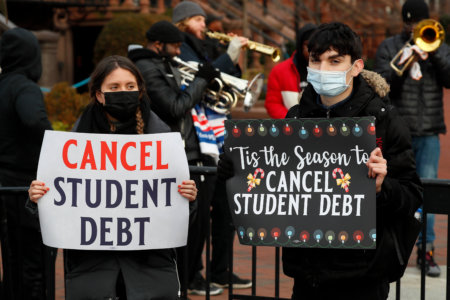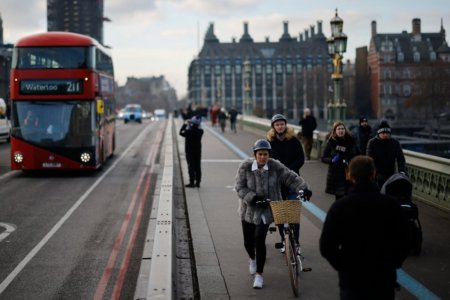
Here’s the latest news on international education in Canada: a student protest movement is making waves around Quebec after three institutions in the province abruptly shut down.
More than 1,000 international students were affected by the recent and sudden closure of three Canadian colleges. According to reports, the colleges reportedly made demands that students pay their tuition in advance merely weeks before announcing plans to cease operations.
The alleged institutions are M College in Montreal, CDE College in Sherbrooke, and CCSQ College, with campuses in Longueuil and Sherbrooke. Students are required to pay between 28,000 and 30,000 Canadian dollars over two years. They receive a diploma by the end of their studies.
Most students affected by this move hail from India, covering around 95% of the 1,117 learners at the three colleges. This includes Manpreet Kaur, who had registered on the Early Childhood Education programme at M College. She had deposited CA$14,000 in tuition.
“But on Jan. 6, 2022, students got an email about the college going bankrupt. It smacks of a scam,” she was quoted saying.
Vishal Rana, a student of CCSQ College, paid CA$24,000 in tuition fees. “I had just four months left of my 16-month course when the college suspended studies,” she said. “I don’t know where to go.”
Students took to the streets in support of those affected by the closures, many of whom were affiliated with the Montreal Youth Student Organisation. This stemmed from a wave of earlier student protest movements in early February and late January. The latest Feb. 17, 2022 car rally student protest covered the grounds from a gurudwara in Quebec’s Montreal to the province’s ministry of education office.
During the protest in early February, which was held in the Ontario province, students were heard shouting in Punjabi, “We’re here to seek justice, we won’t stop till we get justice.”
Most students in Canada attend publicly-funded colleges and universities. The three colleges listed, by contrast, are privately-funded, which means they depend entirely on tuition fees to operate. According to The PIE News, this distinction is not always clear to Indian students, many of whom register for programmes from their home country.
These institutions remain largely career-based, offering diplomas with authorisation from their provinces. M College, for example, offers programmes in Business Management, Graphic and Multimedia Communications and Early Childhood Education.
The High Commission of India in Ottawa has urged students to “make thorough checks of the credentials and standing of the institution where they are seeking admission before making any payments”.

Quebec has been the site of student protest movements in the past. Source: Rogerio Barbosa/AFP
“Please demand a certificate of recognition by the Canadian/ provincial government from the institutions and verify that the institution selected is included in the list of designated learning institutions published on the Government of Canada website,” it said in a statement. “Students should not make any payments or reveal their personal information to any unverified person/ institution offering students a visa on payment.”
The High Commission added that it is in contact with the Canadian federal government, the Quebec provincial government, and elected Canadian representatives from the Indian community to resolve the issue.
“The provincial government of Quebec has advised that the affected students may directly contact the institutions where they are registered, and in the event that they find any difficulty in reimbursement of their fees or transfer of fees, they may file a complaint with the Ministry of Higher Education, Government of Quebec at the following website.”
Canadian authorities are providing a grace period to affected students already in the country to seek admission to an alternative institution.
Those requiring immediate assistance are advised to approach the Education Wing of the High Commission of India in Ottawa in an email addressed to inf.ottawa@mea.gov.in. Students can also email the Consulate General of India in Toronto at com.toronto@mea.gov.in.
Canada student protest: Quebec colleges seeking creditor protection
Reports in January show that the listed institutions filed for creditor protection after demanding Indian students pay their fees in full. CDE College president Joseph Mastantuono previously stated that “no refunds of tuition can be processed at this time” due to the creditor protection request.
The PIE News reports that 633 students had requested refunds totalling CA$6.4 million in the court filing. An additional five million Canadian dollars in tuition has already been paid by students still waiting on the approval of their visa application.
Sushil Sukhwani, the founder of international education consultant Edwise International, told The PIE News that this incident has been thoroughly covered in the Indian press, online, and on social media. “Brand Education Canada will be impacted by this in the short and long term,” he said.
Solidarity protest in Brampton yesterday to demand justice for the 2,000+ international students left in crisis since 3 private colleges (CCSQ, M College, CDE) & a connected recruiting firm in Montreal declared bankruptcy. Thanks to all who joined us! #LuttBandKaro pic.twitter.com/gNAdEKJV1F
— Naujawan Support Network (@NSNPeel) February 14, 2022
“There has been news about the Indian government asking students to connect with them as well as authorities in Quebec to assist with tuition refunds,” he added. “On the Canadian government front there has to be closer and regular monitoring with the Designated Learning Institute process. This may need to be intensified for private institutions.”
This is not the first shortfall international students in Canada face. They do not receive any support from the government to cover their tuition fees, requiring many to rely on part-time jobs to cover the expense.










